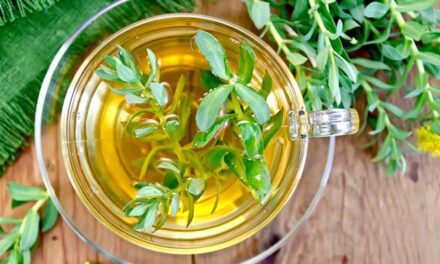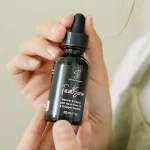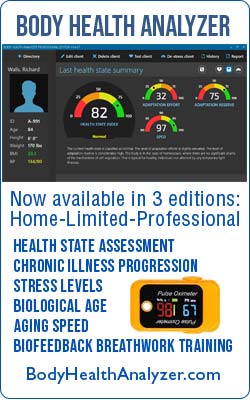Depression could be described as a mood, a state of being, or energy level that includes lack of motivation, a sense of hopelessness, and often a lower level of physical energy. It is an emotional state that can result from many aspects of life. In standard medicine, most doctors label it, and prescribe one or more of a wide variety of anti-depressant drugs. However, in an integrated approach to medicine, we ask why a problem is present and look at all the factors that contribute to it in order to understand its existence and get to the cause. Then, we can correct and clear those areas that may be generating the difficulty. For depression, this could involve diet and substance intake, exercise activity, our biochemical and mental states, and how we feel about all areas of our life, such as job, relationships, and family.
The first important step involves determining if your depression is short term or chronic…and if it is mild, moderate, or severe. Do some careful self-analysis: how often do you feel depressed, and how significant is your debilitation? Most people experience some level of depression occasionally; it’s just part of our natural biorhythm of emotional and mental activity. If you are depressed right now, how long has this been going on? Is it linked to a stressful external cause—for example a life event, issues at work, or problems in a relationship? Or does the depression seem to follow you most of the time, like your own personal dark cloud? A state of constant depression may suggest persistent stress or a biochemical imbalance.
There are varying degrees of depression, from mild to severe, from acute to long term. Physicians often define a condition as chronic if it has persisted more than a month or two. In the case of depression, if you have experienced an ongoing low for more than three months, it is likely a chronic condition and definitely warrants a consultation with a capable, insightful psychiatrist or therapist (or a nutritionally-oriented practitioner if you wish to be guided in a natural approach). Anti-depressant drugs are clearly one solution and have been helpful to millions.
Depression has many causes as well. Western medicine categorizes depression as endogenous, coming from within, and exogenous, coming from outside influences. Exogenous depressions come from reactions to life events and daily stresses, such as loss of a loved one, job problems, or family crises. We also may experience depression from inner conflict, or we may feel overwhelmed by our responsibilities. Many drugs can cause low to mild levels of depression; these include blood pressure medications, estrogens in birth control pills, steroids, and antianxiety drugs, like the benzodiazepines (Valium, Xanax, or Ativan). The remedy for many cases of exogenous depression often involves clearing the causative factor, or doing some counseling to better integrate these life experiences.
Endogenous depression we could call biochemical depression. It tends to run in families, as in genetic factors, and is generated by brain chemistry and imbalances of serotonin (one of the “feel good” hormones that helps us sleep) or other neurotransmitters. Most of the anti-depressant medications prescribed currently are chemicals that maintain or improve serotonin levels. Even the natural approach that utilizes diet, herbs, and amino acids is geared toward raising serotonin levels.
For problems with depression, Western medicine doctors most often prescribe from a class of drugs called the SSRIs, abbreviation for Selective Serotonin Reuptake Inhibitors (help maintain serotonin levels), or those substances like Prozac, Paxil, Zoloft, Lexapro and Effexor. These medicines slow the breakdown and clearing of this important brain chemical, thus leaving more available to brain function. This then improves the mood and motivation of its consumer. The problem is that there are many possible, often likely, side effects of these drugs rather than the “side benefits” of a natural approach. Common side effects of the SSRI drugs include weight gain, loss of sexual energy, and bouts of anger or anxiety.
A hidden problem that contributes to depression is hypothyroidism, both the classically low thyroid function that any physician can discover and “sub-clinical hypothyroidism,” which is based on body/mind symptoms and body temperature. If you are sluggish, have a slow metabolism, feel cold all the time, and experience constipation, and some depression, you may have low thyroid function. Your thyroid numbers may be okay, but you could benefit from low-dose thyroid support, as some people who are stressed and fatigued feel much better as well as with adrenal support. (See the new book, Thyroid and Mental Health by Richard Shames, MD, and his wife Karilee and daughter Georjana.)
For mild to moderate depression, it is wise to try a course of natural therapies, which follow here. For severe or persistent depression, I suggest seeing a conventional or orthomolecular psychiatrist for evaluation and treatment. An integrated approach to any medical problem involves three areas of care: lifestyle (behaviors), natural remedies (diet and supplements), and pharmaceutical drugs as a last resort or for more acute and serious problems.
This approach to psychiatry, which incorporates the use of nutrients to rebalance brain chemistry, is described as orthomolecular therapy. Readers can obtain referrals to trained orthomolecular psychiatrists in the U.S. and Canada by calling Orthomolecular Health Medicine in San Francisco at 415-922-6462. Many physician members of ACAM (American College for the Advancement of Medicine) and most naturopathic practitioners also have training in the treatment of depression using nutritional supplements and herbs. ACAM referrals can be obtained by following the instructions at 800.532.3688.
SELF CARE
My general philosophy suggests that behavior involves motivation and attitude, both of which affect how we care for ourselves, such as whether we make healthy food choices or create and maintain a regular exercise program. My approach in medicine, and I think the highest calling of a physician (a philosopher-physician of the ancient Chinese tradition) is to inspire and educate patients to care for themselves—to live in a way that generates health rather than have a lifestyle that causes disease. Other aspects to depression support and treatment include:
- Self-image and self-love are important conscious and unconscious motivators that affect how we treat ourselves and whether we make the effort to maintain healthy habits.
- Meditation is a tool of ultimate and major significance. Practiced in moderation, meditation can be a meaningful adjunct to any medical regimen.
- Our inner dialogue is also important to our emotional health. (See Feeling Good by Burns, a classic book about the importance of maintaining positive self-talk and the applications of Cognitive Therapy.)
- Appreciation is another key to reestablishing joy. I encourage each of us to assess and appreciate what we have. At the same time, we can acknowledge the challenges we face and do everything in our power to identify and correct the medical and lifestyle approaches that decrease our depression.
- Self-image, how we view ourselves, has a lot to do with behavior and depression. If we feel unworthy of love, particularly of self-love, we may not treat ourselves with respect, or with healthy habits. If we can feel proud of who we are, and believe that we can improve and heal, and grow, we may be more able to rise out of the “blues.” It is common for people with depression to feel withdrawn and to look down, often with a hunched over back. Sit up, look up, and embrace life!
EXERCISE
Exercise activity is one way to prevent and chase away depression. Studies show that regular exercisers feel better and have a better mood and attitude toward life than those who don’t. Cleansing toxins from the blood and the body is one positive way that could help to reduce or shift depression. In addition, there are positive effects on the brain chemicals from exercise, such as an increase in the uplifting endorphins. Work toward a balanced combination of activities that includes aerobic exercise 3–5 times per week for 30–45 minutes, weight training to improve strength and tone, and stretching to insure flexibility. I know this takes an effort, even in organizing your time in the busyness and demands of modern life. However, it is surely worth it. I realize that it may be difficult to begin, especially if you feel depressed, but once your routine is established, it will build and potentially moderate some of the depressed state naturally over the course of a week or two.
Fatigue, and sometimes anxiety and insomnia, frequently accompany depression. In these cases, it will challenge your creativity to work exercise into your life. Yoga and Tai chi, taking classes or perhaps using a video, can be helpful and require less energy. Walking continues to be one of the forms of exercise found by patients, doctors, and research to be the most beneficial.
If you are too tired to exercise: Be sure to seek the care of a health care professional. Explore some form of sitting Qigong or Tai chi, such as that used by cancer patients in China with reported benefit, or explore simple yoga postures and deep breathing.
DIET
“Foods and moods” have been written about many times, and it is clear to me that individual foods as well as various types of diets contribute to how we feel. Food nutrients and chemicals (natural food and synthetic contaminants and additives) affect brain function and neurotransmitter levels, and this leads to experiences such as depression and anxiety, fatigue or insomnia. Food reactions, allergies and hypersensitivities, also affect energy levels, moods, and mental faculties. The False Fat Diet book (by myself and Cameron Stauth) describes a broad range of mechanisms involving food reactivity, which can clearly contribute to and alter mental, physical, and emotional states. Add to this The Detox Diet, an alkaline diet that also eliminates the SNACC habits of Sugar, Nicotine, Alcohol, Caffeine, and Chemicals, and we have The Purification Process. (See next month’s article.) Remember that sugars—especially refined sugars and sweet foods as with sodas and candies— alter the glycemic index and are often associated with rapid mood changes and depression.
Diet Guidelines to Prevent and Benefit Mild to Moderate Depression:
- Get all the appropriate nutrients from wholesome foods and supplements
- Avoid chemicals and junk foods as much as possible
- Rotate your foods and avoid your reactive foods
- Watch your sugar and refined foods intake
- Eat adequate proteins along with fresh vegetables
- Consume fresh fruits and some nuts and seeds
- Eat whole grains and legumes and some sprouts
SUPPLEMENTS
There is a wide range of vitamins, minerals, amino acids, and herbs that can help alleviate depression. Many of them support brain function and specifically serotonin levels. Others support normal hormone balance, specifically of the thyroid and adrenal glands.
The Role of Serotonin and Treatment Using 5-HTP
The connection between pain and low serotonin levels is emphasized in a review on fibromyalgia, “A musculoskeletal pain and fatigue disorder manifested by diffuse myalgia (muscle pain), localized areas of tenderness, fatigue, lowered pain thresholds, and non- restorative sleep.” The first step in treatment suggested is to identify low serum tryptophan and serotonin levels through testing. The review also indicates that supplementing the “serotonin substrate” through either L-tryptophan or 5-HTP (5-hydroxytryptophan) has been shown to improve symptoms of depression, anxiety, insomnia and somatic pains.
- Start with the B vitamins and some minerals. The most important is pyridoxine, vitamin B6. It assists many brain and neurotransmitter functions. Vitamin B12 along with folic acid supports nerve structure and functions, while pantothenic acid and vitamin C aid the adrenal glands and energy. Choline and inositol also aid the brain. Calcium and magnesium allow relaxation and better sleep when taken at night, and iodine supports normal thyroid function. Many of my patients use trace mineral liquids to support hydration and mineral function, which keep our cells electro-dynamically active. Also, for most people we suggest a good quality multi-vitamin/mineral product that is appropriate for their gender and age.
- Amino acid support may be a valuable key to clearing or reducing depression. Adequate protein in the diet is a good beginning for obtaining needed levels of amino acids. In addition, several specific ones may be helpful when taken in higher amounts as supplements. Phenylalanine seems to improve endorphin levels and reduce pain. Tyrosine is energizing and is needed for proper thyroid function; 500–1,000 mg can be taken in the morning and after lunch. Tryptophan is the most important since it directly makes serotonin, which seems to be low in testing for most people suffering from depression. Tryptophan is available or another serotonin precursor, namely 5-HTP (5-hydroxy-tryptophan), can be obtained at health food stores. The amount to start with is 50–100 mg (up to 200 mg) taken at night, as it aids sleep, with an additional 50–100 mg in the morning. The tryptophan dosage is basically ten times the 5-HTP amount in 500–1,000 mg at bed and sometimes in the morning for depression, although both these amino acids can cause drowsiness during the day (so, for people with anxiety and depression, it often works better than for those with fatigue). These amino acids are also helpful for those suffering from Fibromyalgia (as is magnesium malate or malic acid).
- There are also several herbs that may be helpful in improving depression. St John’s wort, with hypericum as the active ingredient, has been helpful in several research studies and in clinical practice as well. It needs to be taken consistently for a month to two to see the benefits and usually three times daily of 300 mg capsules of 0.3% hypericum. Other herbs can be used to handle other symptoms that go with depression. This might include valerian and hops for insomnia, and kava kava for anxiety (GABA also helps for this). Panax ginsengs can be used for energy and Siberian ginseng utilized more for stress. For women with PMS or menopause, or for men with libido changes, different herbal combinations might be beneficial. SAM-e (S-Adenosyl Methionine) has some benefits in the treatment of depression, with decreases in depression scores. However, some people have uncomfortable physical symptoms such as diarrhea and increased anxiety.
Review
With mild to moderate depression, consider an integrated approach drawing on the experience of a naturally-oriented physician who can help you sort out your options. You may be able to get acceptable results without the use of prescription drugs. Acupuncture can be helpful, as could the use of homeopathic remedies. Massage and relaxation therapies may likewise offer improvement. Meditation can be of great value, as can regular exercise. As with so many diseases, getting involved in your own program and finding a way to make things right, and to make them work for you (becoming your own best doctor) is likely the highest art in health care. In other words, get involved in your health and feel empowered. Seek wisdom and guidance from those trained to help you make the best decisions for you. For your long-term care, develop a working partnership with your practitioner. A multi-faceted approach typically holds the greatest promise.
Genetic Links to Depression
Research suggests possible indirect genetic links to depression. A study of the effects of exercise on depression and hormone output evaluated 82 healthy male volunteers (age 18 to 26 years old), who used an exercise bicycle to achieve maximum exertion. The volunteers were tested regarding their mood using the Beck Depression Inventory, an anxiety scale, stress scale, and self-efficacy scale. Blood samples were tested to measure growth hormone, cortisol, and testosterone.
Remember—genetics is not destiny. With the right guidance and health plan, you can delay your pre-dispositions to certain diseases, from heart disease and cancer to depression. Take care of yourself; it’s worth it!











